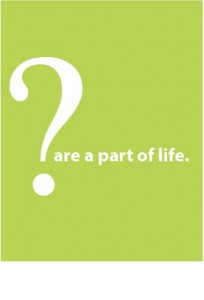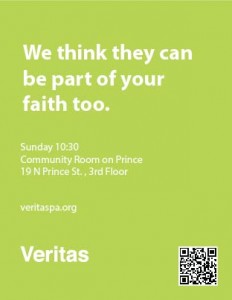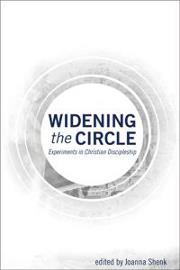 Here is the my text from yesterday's worship gathering including the discussion questions that we talked about following the message.
Here is the my text from yesterday's worship gathering including the discussion questions that we talked about following the message.
So today we continue our series entitled “Scattered and Gathered” looking at the two natures of the church, the Scattered nature, when the church goes out into the world to be his hands and feet, living as a missionary in every phase of life, whether as a teacher, student, social worker, business person, pastor, etc…. And the gathered nature of the church, when we gather together in community to pray, worship, service, build relationships, etc. We are seeking to look at the Scattered and Gathered natures of the church through the lens of the OUT, UP, IN triangle.
Last week we looked at the passage in Mark where Jesus calls the twelve to himself, and then sends them out two by two. We talked about the idea that in that verse (chapter 6 verse 7) we see all three of the relationships that a follower of Jesus should be living out. We see the UP when Jesus calls his followers to himself. We see the OUT when he sends them out, and we see the IN when he sends them out, not alone but two by two. So we see last week the foundation of where we are headed for the next several weeks.
This week and for the next several we are going to focus on the scattered nature of the church, or in our Core Values/Vision terms, the missional kingdom life that followers of Jesus should be living out. In fact, during this part of the series we will be looking at stories, teachings, and instances where Jesus is living out this missional kingdom life all found in the book of Mark.
So turn to the second book in the New Testament, which is about 2/3 of the way through the Bible, and right after Matthew. We are going to look at Mark 1:40-45 and see what it might say to us today gathered together 2,000 years later. Mark 1:40-45 says, “A man with leprosy came and knelt in front of Jesus, begging to be healed. “If you are willing, you can heal me and make me clean,” he said. Moved with compassion, Jesus reached out and touched him. “I am willing,” he said. “Be healed!” Instantly the leprosy disappeared, and the man was healed. Then Jesus sent him on his way with a stern warning: “Don’t tell anyone about this. Instead, go to the priest and let him examine you. Take along the offering required in the Law of Moses for those who have been healed of leprosy. This will be a public testimony that you have been cleansed.” But the man went and spread the word, proclaiming to everyone what had happened. As a result, large crowds soon surrounded Jesus, and he couldn’t publicly enter a town anywhere. He had to stay out in the secluded places, but people from everywhere kept coming to him.”
So let’s unpack this radical, subversive text together from two perspectives. The perspective of Jesus and the perspective of the Leper. And we’ll see this text has to say a great deal to us know matter where we are on our journey.
First, let’s look at the text from the perspective of the leper. In the ancient world, leprosy was one of the most horrific diseases known to humankind. Not only was it damaging to the body, but also to the whole person. Leprosy, also called Hansen's disease, is an infectious disease that is characterized by disfiguring skin sores and progressive nerve damage. Skin lesions are the primary external sign. Left untreated, leprosy can be progressive, causing permanent damage to the skin, nerves, limbs and eyes. Contrary to folklore, leprosy does not cause body parts to fall off, although they can become numb or diseased as a result of secondary infections; these occur as a result of the body's defenses being compromised by the primary disease. Secondary infections, in turn, can result in tissue loss causing fingers and toes to become shortened and deformed, as cartilage is absorbed into the body.
Probably the worst part of Leprosy wasn’t what happened to the body, but what happened to the soul. The way people treated lepers, in Jesus day, was problematic. In the OT, God said that when there are lepers among people of Israel, the should be quarantined and examined. Lepers had to dress like people in mourning for the dead, because they were considered the living dead. They had to warn people around them by crying out “Unclean. Unclean” whenever people were near them.
Not only was that bad enough but the prevailing attitude and thought towards Lepers were 1. You are the walking dead and unclean. And 2. You deserve this because this is your punishment of God against you. Jewish custom also said that you should not even greet a leper, let alone touch one and you shouldn’t get to within 6 feet of a leper. One Rabbi bragged that he threw rocks at Lepers to keep them far from him.
So put yourself in the shoes of the Leper. You have been touched in a very long time. You haven’t been looked out with compassion in a very long time, just disdain and disgust. And you haven’t been near anyone for a very long time. Just think of the courage needed to approach Jesus and speak with him. To approach the son of God, knowing that you are considered unclean, unworthy, and a throw away.
So what Jesus does next surprised not only the Leper, but I’m sure everyone around him. He was filled with compassion or pity for the Leper and then he reached out and touched him. Could Jesus have just said, “Be healed” and not touch the Leper? I’m sure of it. But he realized that the Leper needed not only physical healing from the disease but also emotional and spiritual healing and one of the best ways for that was to touch the leper.
So maybe this morning you feel like that Leper. Like you have been treated like the early lepers were. That you think you are unclean and you are condemned by God and man. That the religious leaders of our day want nothing to do with you. And that you feel that you are so unclean and sinful that Jesus would and could never touch you and heal you of your brokenness. If that is you this morning, look at the story again and see Jesus, moved with compassion for you, reaching his hands down to you, and cleansing you from sin, and healing you. That there is no sin, no level of brokenness, no way of being outside the grace (shown by his touch) of Jesus. He loves you just the way you are, “leprosy” and all. And he wants to heal and cleanse you from sin, and brokenness. He wants to restore you as well to wholeness, forgiveness, and to a new community.
Now let’s turn the picture and look at this story through the lens of Jesus. Jesus had been probably told all his life about the laws surrounding lepers and what you did and did not do. And so that fateful day, with the religious leaders looking on, Jesus is approached by a Leper asking him for healing and wholeness. So Jesus, filled with pity reached out and touched him. Some texts say that Jesus was filled with compassion, some say anger, some say he was indigent. But whatever it was, Jesus saw a human being caught up in the brokenness of the world. A human being who was bound up by sins effect on the world.
He wasn’t put off by the “unclean” leper. He wasn’t repulsed by the man’s condition. He didn’t throw rocks at the leper to keep him back 6 feet. He reached out his hand, laid it on the leper, and with that touch cleansed him from years of pain, separation, and brokenness. Jesus then told him to show himself to the Priest, so that he could be declared clean. Jesus not only knew that he had to heal him from the leprosy but also heal with relationally, communally, and emotionally. Only when a Priest declared someone clean could the leper rejoin society, rejoin his family, and his community. Jesus cared not just about his physical healing, but he also cared about the man’s emotional, spiritual, and relational healing.
Jesus entered into the brokenness of the world. He wasn’t afraid to get his hands “dirty” with the real issues of the world. He didn’t create a holy huddle or bubble around himself and all the “righteous” ones and keep all the riffraff, and sinners out. There wasn’t an in and out with him. He literally reached out and touched the brokenness and sin of the world.
So just a question…why is it that the tax collectors, prostitutes, lepers, and other “sinners” loved hanging out with Jesus but the “tax collectors, prostitutes, lepers, and other sinners” of our day probably don’t feel that way about Christians? All too often we have created an in and out, us vs. them world. We have been too content to stay in our holy huddle and Christian subculture and not enter into the mess and brokenness of the world. We have been afraid to the reach out our hand and touch the “unclean” of our world.
To live out the scattered nature of the church, we as followers of Jesus need to take our cue from Jesus, and enter into the brokenness of our world. If we are truly to live out a missional, Kingdom life, we need to take light into dark places, and not just be content to take light into light places. We need to reach out our hand, pop that Christian bubble, and touch people that others have condemned, marginalized, or brushed aside. We have to reach out to people who consider themselves unworthy of God’s love, who consider themselves too far gone to be redeemed, and too unclean for anyone to care about them.
So now that we have looked at this text from both the perspective of the Leper and the perspective of Jesus, let’s look at the text through our own perspective. Let’s unpack what this text might be saying to you and I and what it looks like when the rubber of the text, hits the road of applying it into our daily lives, both as individuals and as a community.
1. What thoughts, comments, insights, questions, push back, etc.. do you have regarding the text and the message?
2. Who are the "unclean" in our world? Who have we tended to marginalize?
3. What is God speaking to you about and what are you going to do about it?
 Several weeks (or probably more like months) ago I received the book "Viral: How Social Networking is poised to ignite revival" by Leonard Sweet as part of the Blogging for Books program that I am a part of through WaterBrook and Multnomah. So I'm finally getting around to reviewing this book.
Several weeks (or probably more like months) ago I received the book "Viral: How Social Networking is poised to ignite revival" by Leonard Sweet as part of the Blogging for Books program that I am a part of through WaterBrook and Multnomah. So I'm finally getting around to reviewing this book.









